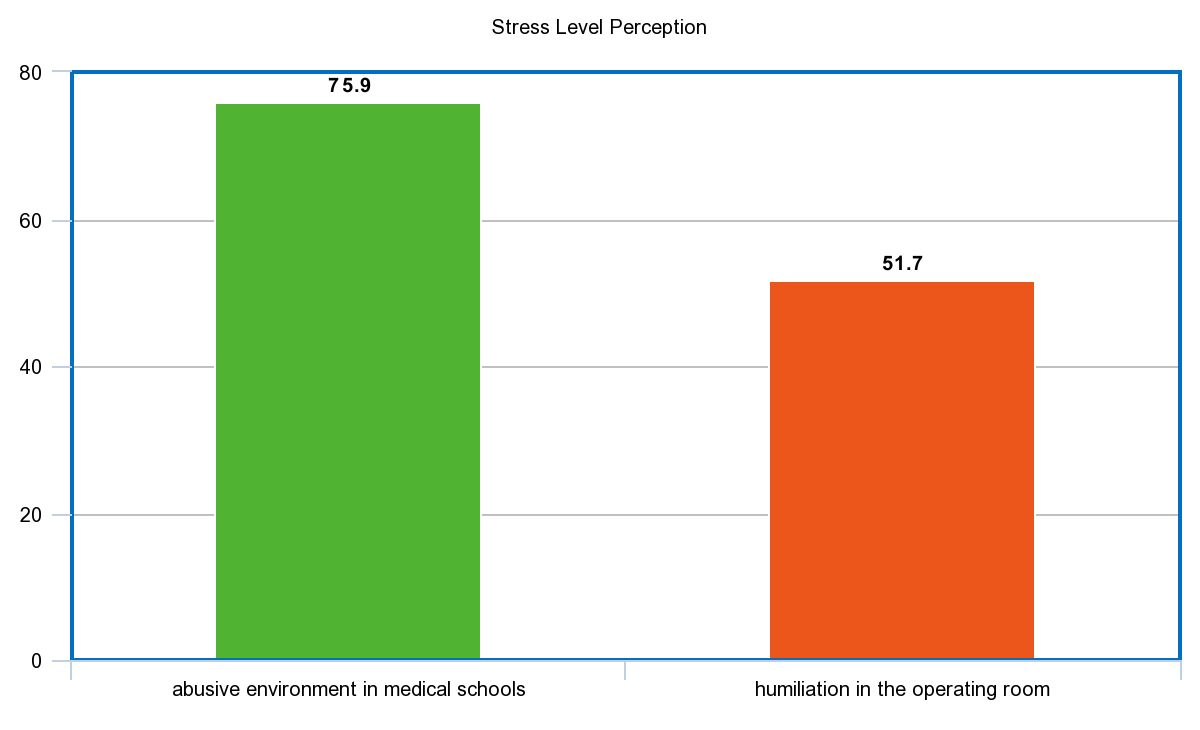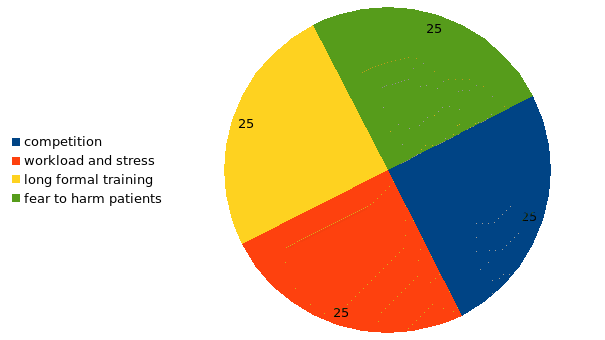The inability of medical students and patients to precisely describe the plastic surgeon’s responsibilities leads to a significant misunderstanding of the profession. This paper discusses and analyzes eight scholarly articles about the perception of plastic surgeons’ work. The research results show that most individuals have a vague perception of plastic surgeons’ work. According to the popular point of view, they focus only on aesthetic operations, which is not entirely true. Plastic surgeons have the same basic skills as other surgeons and perform complicated microsurgery for functional needs. The limited understanding of the plastic surgeon’s professional responsibilities leads to the inability of medical students to choose the specialization consciously, while patients should learn that this specialist can help with non-aesthetic issues.
Introduction
Most people perceive the plastic surgeon profession as prestigious, but they need an understanding of the specialist’s responsibilities. The critical detail is that the limited knowledge about the plastic surgeon’s work is characteristic of medical students. Even though their understanding of the profession is more detailed than the general audience’s, it still needs improvement. The popular stereotypes about the duties of the plastic surgeon lead to several possible problems. First, patients need to learn that the plastic surgeon can help them with aesthetic procedures and microsurgery, body reconstruction, and other operations. Second, medical students need to perceive the profession better, which leads to difficulties in choosing this specialization. Therefore, plastic surgeons are general surgical experts, allowing them to perform aesthetic operations successfully.
Materials and Methods
This paper discusses and analyzes eight academic articles from peer-reviewed journals. All texts focus on the topic of the responsibilities of plastic surgeons and their perception by people. There is a difference between the view of the general audience or potential patients on the work of the plastic surgeon and the perception of the profession by medical students. The articles contain survey information and numerical data supporting the authors’ hypothesis. The paper features the results obtained using the qualitative analysis methods, mainly the summary of the findings from the articles and their comparison. It allows an understanding of the background of the discussed topic and creates the basis for further investigation.
Results
The results of the survey conducted by Mortada et al. show that media involvement significantly impacts the perception of the plastic surgeon profession. Slightly less than 57% of medical students aged 21.2 years old have the appropriate perception of the specialization (Mortada et al., 2019). The public knowledge about the profession in general, and students need more details about this work. The results of the questionnaire show that most respondents (70.3% of students) think plastic surgeons help patients with burns (Mortada et al., 2019). These results are consistent with the conclusions articulated by Alyahya et al. (2021). According to it, 80.8% of respondents think plastic surgeons work with cosmetic nose reshaping, 64.7% of students claim they restore broken noses, and 74% assume they work with burns (Alyahya et al., 2021). Almost 90% of medical students mention breast reconstruction as the main activity of plastic surgeons, and this service is often mentioned in the media (Fraser et al., 2017). The statistical results support the same hypothesis, making it more foregrounded. The results are represented in Table 1:
Table 1. Impact of Media Involvement on the Perception of the Plastic Surgeon Profession by Medical Students
The work of the plastic surgeon is connected with significant stress. 75.9% of the respondents report an abusive environment in medical schools (AlQhtani et al., 2022). 51.7% of medical students are humiliated in the operating room, which leads to a gradual loss of self-confidence (AlQhtani et al., 2022). Their self-esteem improves after approximately five months of work in the hospital, where they are not humiliated and shamed (Mir et al., 2022). The investigation results conducted by Neves et al. (2022) support these claims and recommend conducting monthly assessments of professional performance. The authors state that only 30% of students positively evaluated regular tests in the beginning, but in 5 months, their number increased to 43% (Neves et al., 2022). This data emphasizes the connection between self-esteem, professional success, and motivation for development among plastic surgeons. It is possible to see the results in the Bar Chart 1:

The quantitative data reflects the concerns of medical students about the choice of the plastic surgeon specialization. 41% of medical students fear competition in the plastic surgery sphere, which is their primary concern (Pasha et al., 2020). Almost 77% of the respondents from Davis et al. (2010) survey agree with these conclusions. The research was conducted in 17 medical universities, which allows stating that the results are objective (Davis et al., 2010). Medical students understand plastic surgery’s peculiarities, making their perception of the profession realistic. Graph 1 illustrates the most wide-spread concerns medical students associate with the profession of the plastic surgeon.

T
herefore, most medical students share a common vision of the plastic surgeon’s work, making their fears similar.
Discussion
Plastic surgeons are usually perceived as aesthetic surgeons by the general population and medical students. It causes complications among students who decide to specialize in plastic surgery without knowing precisely what the plastic surgeon’s responsibilities are (Mortada et al., 2019). Students form their view of the profession using popular media, which makes the image general (Fraser et al., 2017). Cosmetic and reconstructive medical services and microsurgery are the primary duties of plastic surgeons who work with the misshaped, damaged, missing, or defective parts of the body (Alyahya et al., 2021). However, in the public perception, plastic surgeons do not usually work with severe illnesses and focus on aesthetic changes, which is the wrong view (Alyahya et al., 2021). Plastic surgeons also work with the outcomes of injuries, carpal tunnel syndrome, and peripheral neuropathies (Alyahya et al., 2021). Therefore, the actions performed by plastic surgeons are various, while public awareness about it is limited.
There are certain restrictions in the professional formation of plastic surgeons. For instance, shaming students for lack of competencies and wrong answers is widespread in medical schools (AlQhtani et al., 2022). It makes plastic surgery stressful for young professionals, leading to their destructive behavior, psychological problems, and poor job performance (AlQhtani et al., 2022). The peculiar detail is that the stress level reduces significantly after graduation, and most young plastic surgeons feel better at the workplace (Mir et al., 2022). Most students and plastic surgeons state that they prefer monthly assessments of their competencies and performance because they can track their progress adequately (Neves et al., 2022). It is common in the hospital environment when the professional performance of all doctors is regularly evaluated, but it is not widely used before graduation (Neves et al., 2022). It allows assuming that evaluation of the professional performance is one of the stressful factors that complicate the work of plastic surgeons.
Plastic surgery has high competition among doctors, which makes the requirements for this profession harsh. According to the estimates, most students fear the serious workload and excessive stress that might not allow them to preserve the work-life balance (Pasha et al., 2020). In addition, students understand that this profession requires long formal training and practical skills to avoid harming the patient (Neves et al., 2022). The awareness of these aspects influences the student’s interest in pursuing a plastic surgeon career (Davis et al., 2010). In other words, this knowledge is essential in understanding whether the student is ready to specialize in plastic surgery and has enough inclinations and competencies to choose this career.
Conclusion
The connection between aesthetics and plastic surgery is strong, and most people share this view. The peculiar detail is that most medical students also have this misconception about plastic surgery specialization, which influences their career choice. The investigation into the challenges connected with the profession of plastic surgeons shows that many students are afraid of high competition and excessive stress levels if they choose this path.
References
AlQhtani, A. Z., Alfaqeeh, F. A., Alabdulkarim, A., & AlSahabi, A. M. (2022). Perception of Shame in the Plastic Surgery Field. Plastic and reconstructive surgery. Global Open, 10(10), 1-7. Web.
Alyahya, T., Zakaria, O. M., Al Jabr, F. A., Alshaikhmubarak, S. F., Nidal, A., Abdulwahab, A., Sakan, N., Alarfaj, A. S., & Al Furaikh, B. F. (2021). Plastic and aesthetic surgery among medical students: A cross-sectional study. SAGE Open Medicine 9, 1-8. Web.
Davis, C. R., O’Donoghue, J. M., McPhail, J., & Green, A. R. (2010). How to improve plastic surgery knowledge, skills and career interest in undergraduates in one day. Journal of Plastic, Reconstructive & Aesthetic Surgery: JPRAS, 63(10), 1677–1681. Web.
Fraser, S. J., Al Youha, S., Rasmussen, P. J., & Williams, J. G. (2017). Medical student perception of plastic surgery and the impact of mainstream media. Plastic Surgery (Oakville, Ont.), 25(1), 48–53. Web.
Mir, M. A., Chattopadhyay, D., Vathulya, M., Mago, V., Maurya, R. K., Kapoor, A., & Rao, N. (2022). The prospective study of change of perception of postgraduate students on objective structured clinical examination in burns and plastic surgery. Journal of Education and Health Promotion, 11(144), 1-4. Web.
Mortada, H. H. Alwahtani, Y. A., Seraj, H. Z., Albishi, W. K., & Aljaaly, H. A. (2019). Perception of plastic surgery and the role of media among medical students: Cross-sectional study. Interactive Journal of Medical Research, 8(2), 1-8. Web.
Neves, S., Lacey, H., Bernard, K., & Cc King, I. (2022). Letter to the editor: “How to attract our future? – Perception of plastic surgery among medical students”. Journal of Plastic, Reconstructive & Aesthetic Surgery: JPRAS, 77, 131–132. Web.
Pasha, T., Lumley, E. S., Dwyer-Hemmings, L., & Fell, M. (2020). Undergraduate plastic surgery in the United Kingdom: The students’ perspective. Journal of Plastic, Reconstructive & Aesthetic Surgery: JPRAS, 73(11), 2086–2102. Web.